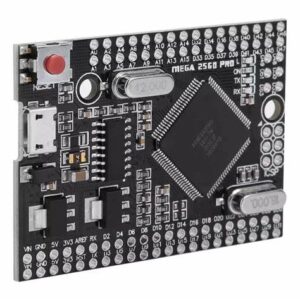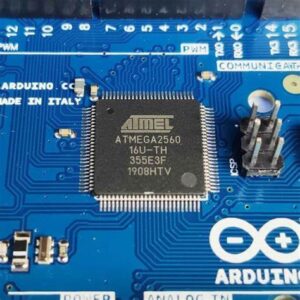Restoring Microchip ATMEGA2560 MCU Chip Flash Memory code and break off the embedded firmware out from atmega2560 microcontroller which can help engineer to copy heximal program from atmega2560 secured microprocessor flash memory;

Restoring Microchip ATMEGA2560 MCU Chip Flash Memory code and break off the embedded firmware out from atmega2560 microcontroller which can help engineer to copy heximal program from atmega2560 secured microprocessor flash memory;
Note: If Interrupt Vectors are placed in the Boot Loader section and Boot Lock bit BLB02 is pro- grammed, interrupts are disabled while executing from the Application section. If Interrupt Vectors are placed in the Application section and Boot Lock bit BLB12 is programed, interrupts are disabled while executing from the Boot Loader section. Refer to the section “Boot LoaderSupport – Read-While-Write Self-Programming” on page 202 for details on Boot Lock Bits.
The IVCE bit must be written to logic one to enable change of the IVSEL bit. IVCE is cleared by hardware four cycles after it is written or when IVSEL is written when cracking ATMEGA2560 Microcontroller fuse bit. Setting the IVCE bit will disable interrupts, as explained in the IVSEL description above. See Code Example below.
All AVR ports have true Read-Modify-Write functionality when used as general digital I/O ports. This means that the direction of one port pin can be changed without unintentionally changing the direction of any other pin with the SBI and CBI instructions. The same applies when chang- ing drive value (if configured as output) or enabling/disabling of pull-up resistors (if configured as input).

crack atmega2560 microprocessor flash memory and readout firmware from heximal code
Each output buffer has symmetrical drive characteristics with both high sink and source capability. The pin driver is strong enough to drive LED displays directly. All port pins have indi- vidually selectable pull-up resistors with a supply-voltage invariant resistance when unlock atmel mcu atmega2560 flash memory locked bits. All I/O pins have protection diodes to both VCC and Ground as indicated in Figure 21. Refer to “Electrical Characteristics – TA = -40°C to 85°C” on page 235 for a complete list of parameters.






